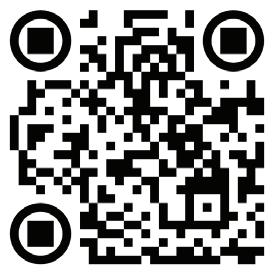
2024-25 Impact Report

interior cover showcases “Mercy”—a poignant work by Dr. Asefi depicting an Afghan girl praying for relief from oppression and tyranny.


2024-25 Impact Report

interior cover showcases “Mercy”—a poignant work by Dr. Asefi depicting an Afghan girl praying for relief from oppression and tyranny.

Since its founding in 2003, the Center for the Study of Religion and Conflict has helped the communities we serve navigate the challenges of a rapidly changing world: from the lessons of September 11 to those of January 6; from the “war on terror” to the U.S. withdrawal from Afghanistan; from the currents of globalization to the global crosscurrents of nationalism; from pioneering advances in science and technology to the political fallout of a global pandemic; from wars and revolutions abroad to culture wars and conflicting views of reality at home.
Throughout it all, our commitment to enhancing public understanding of religion’s influence in politics, culture, conflict and peace has remained vigorous and constant. This impact report shares recent news and accomplishments that further this critical mission.
A newly expanded center team has given fresh energy to our work. Assistant director John Marc Sianghio has brought keen vision and vital leadership experience, a generous donor funded our first-ever artist-in-residence, Dr. Mohammad Yousof Asefi, and University Professor Craig Calhoun has joined the center as its inaugural Senior Fellow.
Our new Spirituality and Public Life initiative is charting inroads into the landscape of the “spiritual but not religious,” where ever greater numbers of our students and fellow citizens find themselves at home. Our “Recovering Truth” and “Beyond Secularization” projects have advanced critical dialogues and explored understudied connections among religion, journalism and democracy and among religion, science and culture. The Peace Studies program continues to address pressing issues in our world and to conceive new ways of advancing peace. Finally, as always, our student scholarships and programs are shaping tomorrow’s leaders by creating dynamic global partnerships.
As you review the pages ahead. Many hands went into the creation of this report, but center communication manager Dawn Beeson was the architect, artist and chief laborer who brought it all to fruition. You will see she has added QR codes to many stories so you can learn about them online.
Lastly, this report is a testament to the broad and dedicated community upon which the center’s work relies: generous donors, charitable foundations, university leaders, faculty, staff, students and community members. We are bound together by our shared concerns, hopes and aspirations. Most of all, we share the urgent task of nurturing the civic, intellectual and moral virtues that will strengthen the bonds of our community, our nation and our world.
Sincerely,

Associate Professor of Religious Studies
The Center for the Study of Religion and Conflict at Arizona State University explores how religion shapes societies, influences conflicts and inspires solutions.
By bringing together scholars, students and civic leaders, the center fosters dialogue and understanding around pressing global challenges.
At the heart of everything we do is a team of dedicated individuals who bring our mission to life.
Our dynamic team orchestrates important events, oversees research initiatives and deepens understanding about religion, conflict and peace.

John Carlson Director

Saikia
Hardt-Nickachos Chair in Peace Studies

Calhoun
University
Professor

Tracy Fessenden Director of Strategic Initiatives

Anand Gopal Assistant Research Professor
of Social Sciences
Introducing our inaugural Senior Fellow
Craig Calhoun, a renowned sociologist and social theorist, brings exceptional scholarship and interdisciplinary expertise to the center. His research and public engagement strengthen the center’s mission, inspiring innovative approaches to global challenges.
At ASU, Calhoun is a University Professor of Social Sciences. His work spans anthropology, political science, philosophy and international studies, focusing on democracy, social solidarity and political economy. Previously, he led the London School of Economics, the Social Science Research Council and the Berggruen Institute. His collaborations with organizations such as the Mastercard Foundation reflect a deep commitment to connecting his scholarship with public impact. calhoun.faculty.asu.edu

John Marc Sianghio Assistant Director
John Marc Sianghio joined the center team in April, 2024. Coming to ASU from the University of Chicago, he brings knowledge and expertise from diverse roles in higher education, the military and non-profit organizations.
Here, John Marc oversees the center staff, collaborates with center faculty on program and research development and helps donors match their passions with center initiatives.
Sianghio holds a PhD in religious ethics from the University of Chicago, an MDiv in public ministry and MA in political science. As an active public scholar, his work explores religion, culture and conflict. His recent projects focus on the ethics of war, human rights and pluralism.

Matt Correa Research Projects Manager
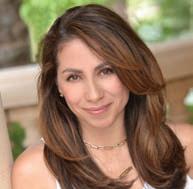
Business Operations Specialist

Dawn Beeson Manager of Marketing and Communication

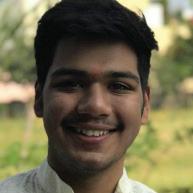
Social Media and Marketing Project Assistant

Brittany Martin Director of Development for the Humanities ASU Foundation

Where do our ideas of progress come from? Why is the idea of progress so closely associated with technology? What do the answers to these questions have to do with how society is organized? These key questions were at the heart of a groundbreaking research initiative at Arizona State University, led by Ben Hurlbut, Hava TiroshSamuelson and the late Gaymon Bennett. Supported by a $2.01 million grant from the Templeton Religion Trust, the project examined how science, technology and religion shape our understanding of progress and humanity’s future.
Hurlbut said of the project, “Our basic conviction is that to understand the interplay between religion, science and technology, we need to pose new questions and engage new methods. The artificial dichotomy between science and religion is no longer valid.” To address this, the team developed a collaborative laboratory—or co-lab—where new ideas can be generated, nurtured, tested and applied.
Using a multidisciplinary approach to bring together historians, ethicists and social scientists, the co-lab team explored how scientific advancements influence moral and spiritual debates, focusing on three key areas:
The human: As biotechnologies evolve, questions of identity, dignity and morality emerge. How do scientific innovations redefine what it means to be human? While many view scientific and technological progress as separate from religion, research shows that faith continues to shape public life.
The digital: Tech culture often assumes life can be programmed like code, but innovation isn’t just about technology—it is also about values. The project examines how such thinking shapes political, economic and spiritual visions of the future.
The natural: Religious and scientific perspectives on nature inform our relationship with the environment. This research explored evolving concepts of knowledge, stewardship and sustainability. Rather than treating science and religion as separate or merely in dialogue, this project explored their deeper connections in shaping public life.
“It’s not incidental that these three areas are some of the major areas of collective crisis in the world today. But on another level,” Hurlbut points out, “these are really old, really fundamental questions. Our lives are saturated with science and technology. It’s fundamentally changing how we relate to ourselves, our bodies, our planet, our food, our lovers and our sense of a higher reality. All these areas cut across time, place, culture and tradition, and they’re some of the most pressing issues that humanity is facing today.”
This timely work challenges entrenched ideas and catalyzes fresh conversations about progress, ethics and the human experience in an era of rapid change.
GAYMON BENNETT (1972-2024)
Associate
Professor
School of Historical, Philosophical and Religious Stuides
Anthropologist of religion, science and technology

BEN HURLBUT
Associate Professor
School of Life Sciences
Specialist in science and technology studies
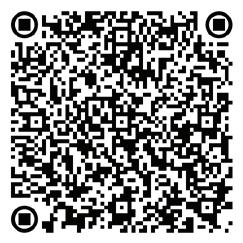
View the project video and outcomes site. Made possible by Templeton Religion Trust.

HAVA TIROSH-SAMUELSON
Regents Professor and Director
Center for Jewish Studies
Historian of religion and environmentalism

TRACY FESSENDEN Director of Strategic Initiatives

The initiative in Spirituality and Public Life cultivates new conversations, networks and styles of inquiry that advance innovative teaching and scholarship exploring how “spirituality”—not simply “religion” traditionally conceived—influences various modes of public life. csrc.asu.edu/spirituality
In 2024, the Initiative in Spirituality and Public Life sponsored two research symposia and launched a book series exploring spirituality’s connections to culture, the arts and social justice.
The April symposium, Spiritual Powers, brought together scholars from a dozen universities, including Yale, Penn, Chicago, Toronto, Texas, Syracuse and the University of California, Santa Barbara to share and workshop their latest research. Participants examined the spiritual lives of charismatic and familiar figures, places and objects with topics ranging from zombies and Ouija boards to cemeteries, desert landscapes, colonial contraband and iconic personae like William Blake and Patti Smith.
In May 2024, SPL partnered with Wesleyan University for a symposium on women’s religious experiences and 19th century social justice movements. Presentations were held at Wesleyan and the New Haven Museum, highlighting collaborations between white and Black women who sought to expand educational opportunities for African American women and girls in antebellum New England.
SPL director Tracy Fessenden and Chad Seales of the University of Texas at Austin launched the new book series, “Iconologies,” with the University of Chicago Press. The series extends the study of spirituality beyond the limits of religious traditions into music, the arts, literature, history, entertainment, sports, science, politics and economic life.
SPL brought together hundreds of audience members to hear two award-winning writers explore contemporary American spirituality.
In October 2023, journalist and religious studies scholar Sam Kestenbaum delivered a lecture titled Conspirituality in a Time of Plague. He shared stories about spirituality after the pandemic. While many churches closed during COVID-19, Kestenbaum revealed that spiritual activity actually flourished, albeit in unexpected places and ways. His examples included: a faith-healing TikToker gaining a fandom; a religion-and-politics roadshow uniting prophets, January 6 rioters and anti-vaxxers; and New Age fairs where the yoga and wellness crowd absorbed QAnon gospel while shopping for sage and crystals. Drawing on his reporting for major outlets like The New York Times and The Washington Post, Kestenbaum painted a vivid picture of diverse spiritual trends emerging during the national crisis.
In his April 2024 lecture, Is There God After Prince?, scholar of American literature and religion Peter Coviello considered the fate of our secular spiritual attachments in an era of planetsized calamity. Taking his cue from the death of Prince, the much-mourned saint of Minneapolis, Coviello examined the deep attachments we form to books, records and people. He described these as heralds of possibilities lying just beyond the secular perimeter of the merely knowable and known. These possibilities, he noted, can be incandescent and joyful—as Prince so radiantly demonstrates—but also sometimes desolating in ways that call us to renewed bonds of solidarity, justice and love.
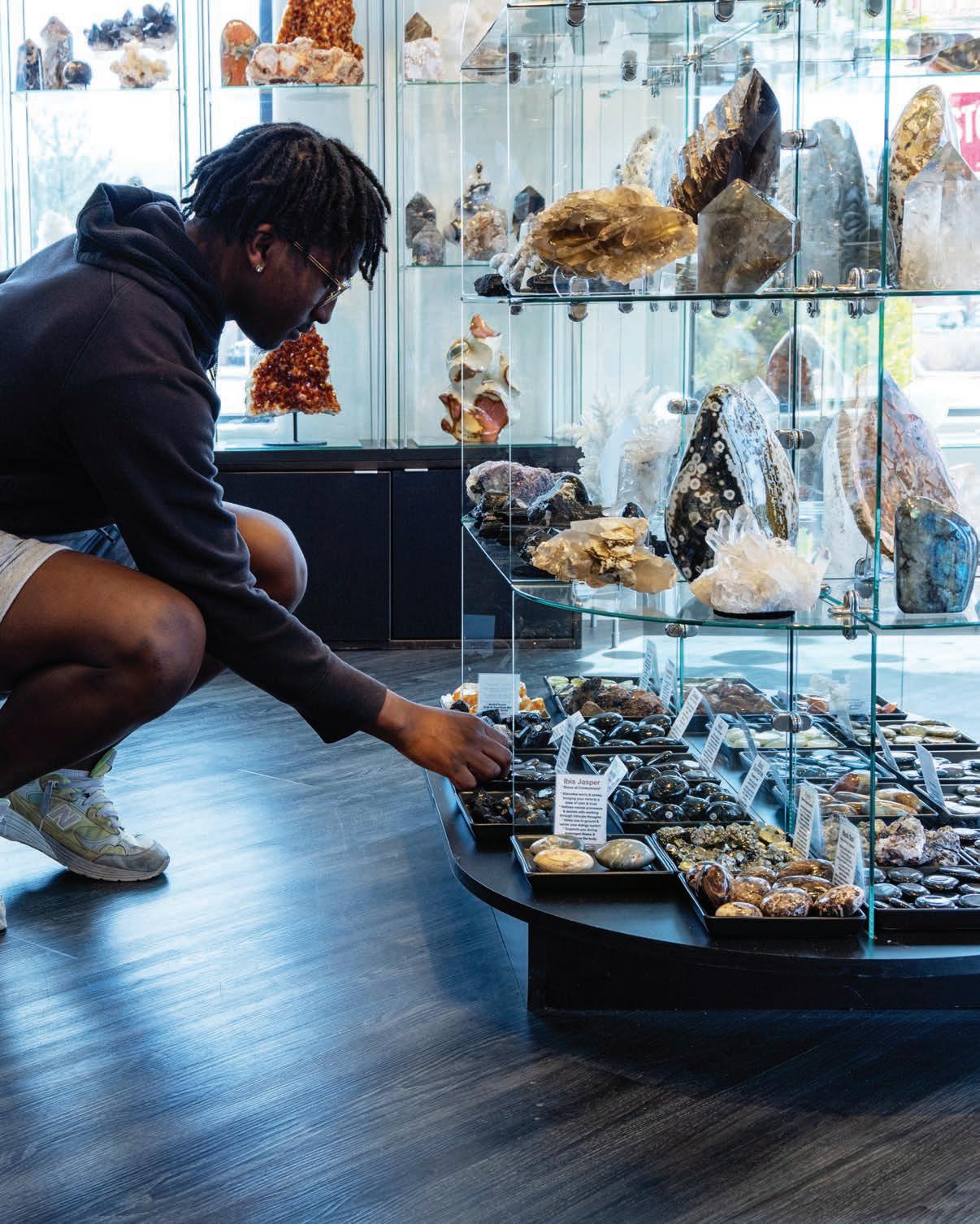
I am excited to be part of the Spirituality and Public Life Initiative. Spirituality may be expressed in surprising ways. It can be individual or arise in relationships with people, nature, music, art, literature or social activism. We arrange our public lives in ways that reflect our values and our yearning for spiritual connection.
Understanding how our spirituality affects and enhances our life choices is important for navigating the changes that we face in the future.
Penny Davis Friend of the Center and SPL Benefactor
SPL facilitated the creation of two new undergraduate courses, The Spiritual Quest and Spirituality in America.
In The Spiritual Quest, taught by Tracy Fessenden, students investigate the religious demographics of those who identify as spiritual, but not religious. They explore questions such as: What do spiritual seekers pursue, and are their quests shaped by culture, place and lived experience? How do histories of trauma and oppression fuel the desire to heal, and how are spiritual resources for healing used—or abused— beyond their original contexts? Is spirituality a feature of religion, a critique of it, a purer (or perhaps corrupted) form of it or an alternative to religion? What do the voices of spiritual seekers tell us about justice, solitude, selfhood, solidarity, community, care for the earth, grief, resilience and joy? Students look for answers in contemporary American spiritual writing and its antecedents from around the world. Readings include contemplative, theological, mystical, ethical and anthropological texts, as well as memoir, fiction and poetry.
Spirituality in America, created and taught by religious studies instructor Terry Shoemaker, engages students in on-the-ground research regarding shifts and trends in individualized pursuits of the sacred in Arizona and the United States. Sociological, historical and anthropological studies prepare students to examine contemporary versions of spiritual resources in Sedona, where they take part as ethnographic participant-observers in vortex energy sites, a Buddhist stupa and spiritual superstores.
Background photo: Spirituality in America student investigating crystals during a field trip to Sedona, Arizona.
YASMIN SAIKIA
Hardt-Nickachos Chair in Peace Studies
As the Hardt-Nickachos Chair in Peace Studies at the Center for the Study of Religion and Conflict, much of my work has focused on “people’s peace.” This idea emphasizes the power of everyday efforts to bridge divides and navigate conflicts, offering a vision to create a more just and inclusive world.
A key part of this work is a three-book series, coedited with Chad Haines, which we began over a decade ago. Our first volume, “Women and Peace in the Islamic World,” released in 2014, considered the role of Islamic women as peacemakers. Our second book, published in 2019, “People’s Peace,” approached peace efforts from the perspective of ordinary endeavors and lived experiences. In 2024, the third book in the series, “On Othering: Processes and Politics of Unpeace,” added to this broader effort in content and enhanced accessibility.
With this third book, alongside traditional academic publishing, we have decided to publish it open access. Academic volumes are often priced several times higher than popular press books, which creates barriers to gaining valuable knowledge. Open access books, however, allow for free digital downloads, making them available to a global audience without paywalls.
Though publishing an open access book is challenging, we chose this route to ensure “On Othering” could reach a wider audience. This approach democratizes knowledge by allowing scholars, practitioners and the public—especially those without institutional access—to benefit from the research. It enhances the publication’s impact by increasing opportunities for collaboration, citation and practical application. This aligns with the broader goals of people’s peace, contributing to societal progress and fostering an inclusive exchange of ideas that can be transformative in peacebuilding.
Additionally, the wider reach of this book across disciplinary audiences helps launch our newest scholarly effort, the development of the concept of “peace humanities.” Peace humanities will explore how diverse cultures conceive and sustain peace through a humanistic lens, establishing a new frontier for the humanities to actively shape peace studies and peacebuilding practices.

Read “On Othering” online or purchase the book. aupress.ca/books/120321-on-othering



In recent years we have seen a striking indifference to truth. In parts of our government, swaths of the media, some of our classrooms and key sectors of culture, the imperative to seek and tell the truth is ignored, even viewed with contempt.
Authoritarian, anti-democratic and antiexpertise movements have surged in the United States and around the world. The credibility of scientists, journalists, educators and civil servants has eroded as trust in the institutions of civic life has fallen away. Religious actors and institutions play ambivalent roles, in some cases resisting and in others supporting the traffic in fabrications and falsehoods. In response to this “post-truth” moment, the CSRC has led a multi-year project, Recovering Truth: Religion, Journalism and Democracy in a Post-Truth Era
This interdisciplinary research project enabled scholars, journalists and students to engage and create new platforms for thinking and communicating about the pursuit, meaning and recovery of truth in democratic life. The project has been undertaken in partnership with the Walter Cronkite School of Journalism and Mass Communication and is supported by a generous grant from the Henry Luce Foundation’s Program in Theology
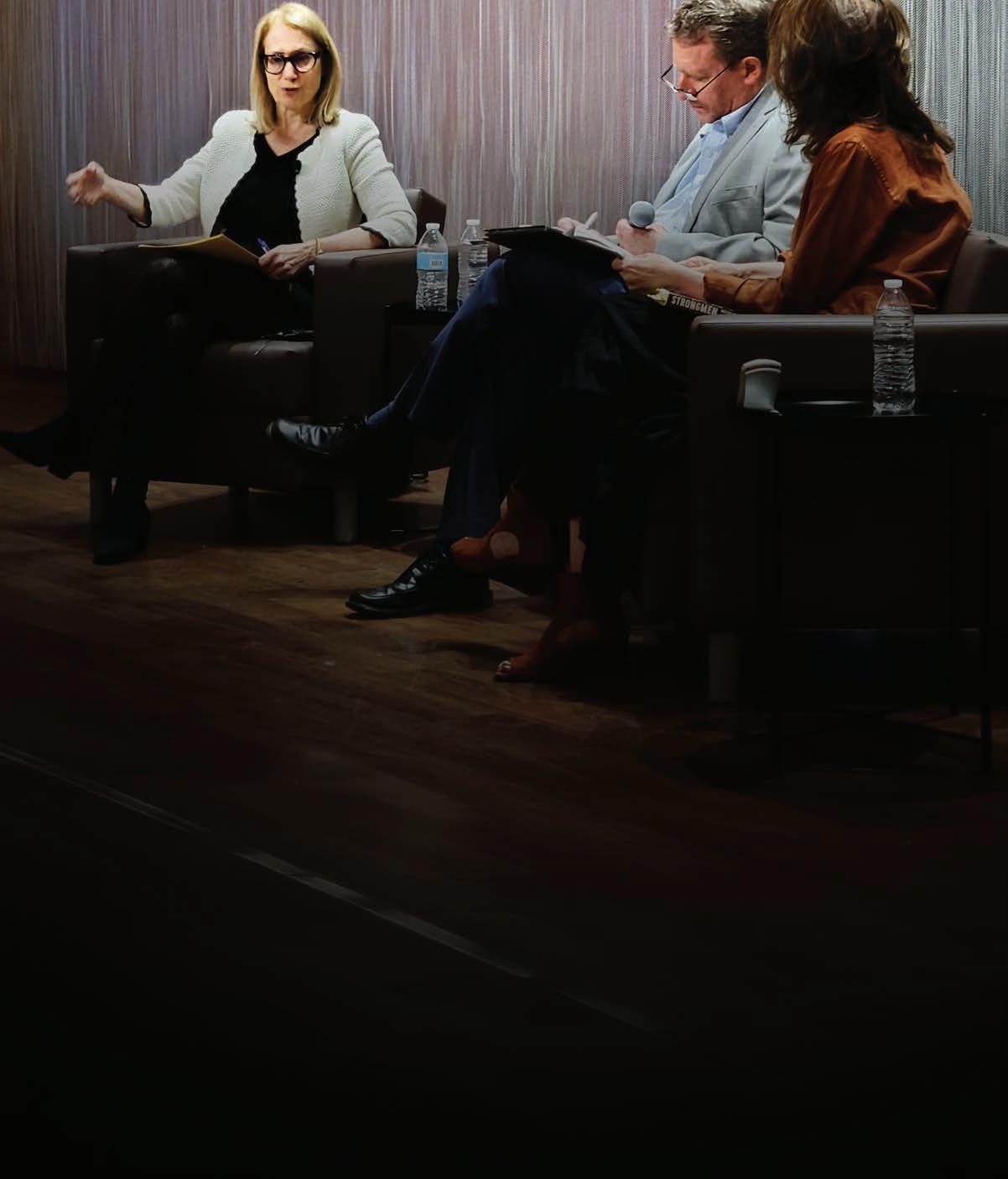
To Name the Bigger Lie
Sarah Viren Scribner, 2023
Sincerely Held: American Secularism and Its Believers
Charles McCrary University of Chicago Press, 2022
Between Heaven and Russia
Sarah Riccardi-Swartz Fordham University Press, 2022
Unholy: Why White Evangelicals Worship at the Altar of Donald Trump
Sarah Posner Random House, 2020
4 books 10 public programs
7 news features 3 podcast guest features 22 articles

8 podcast episodes
To Name the Bigger Lie
Knowledge, Feeling and Belief
Russia and the Religious Right Truth in Journalism
Postmodernism, Post-Truth and Democracy
Science, Anti-Science and Democracy
The Truth Divide Grows Violent
Truth Is On The Ballot
Learn more about the project, read articles and listen to the podcast. csrc.asu.edu/recoveringtruth
ANAND GOPAL
Assistant Research Professor and Journalist
As a journalist and researcher, I have spent a lot of time in some of the world’s most dangerous places, including Afghanistan, Syria and Iraq. My goal has been to understand the realities of conflict through the eyes of those who experience it every day.

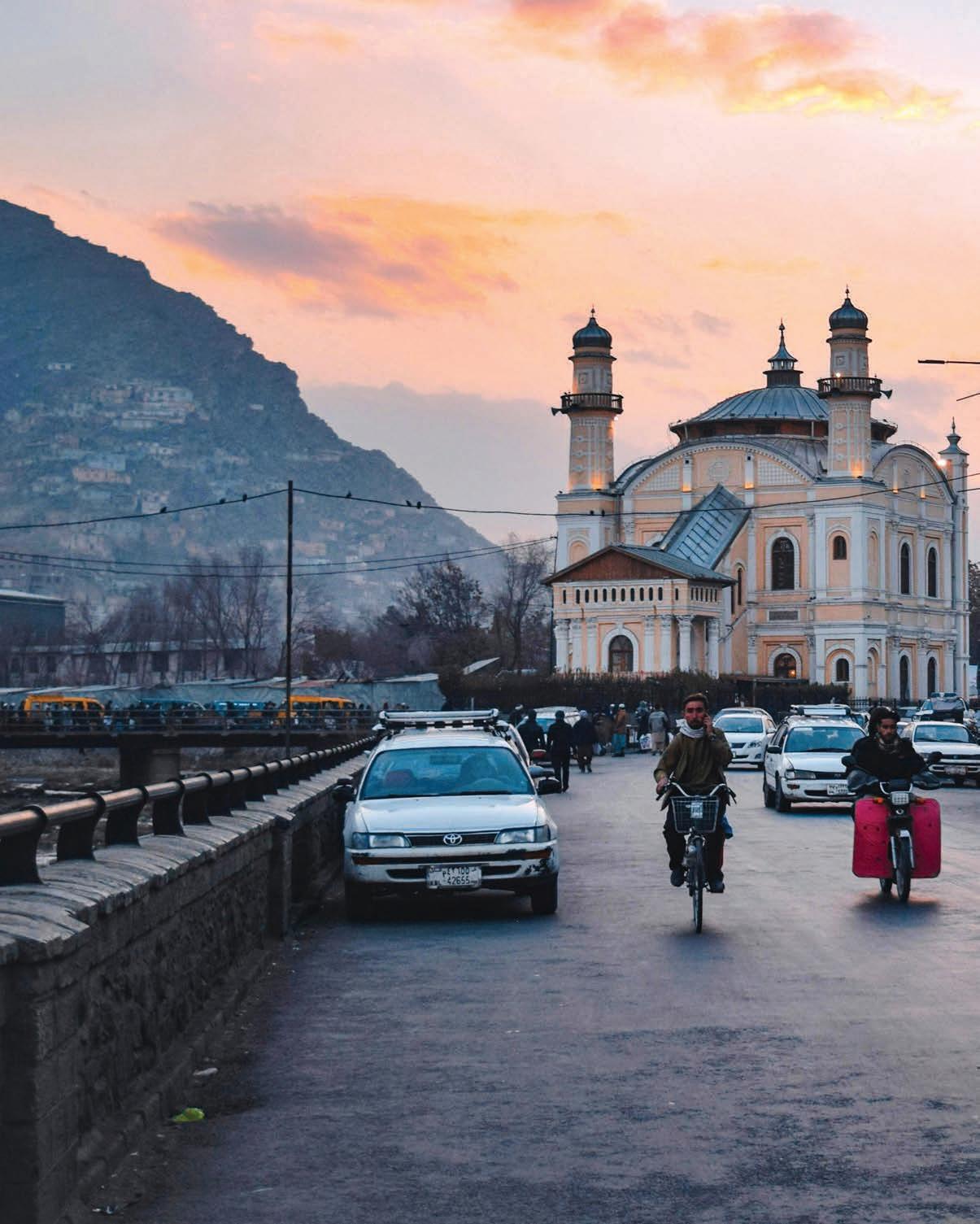
I was one of the few Western journalists to embed with the Taliban, which gave me a unique view of their beliefs and the stories they tell about war. This experience inspired my book “No Good Men Among the Living: America, the Taliban and the War through Afghan Eyes,” as well as my forthcoming book on the Syrian revolution.
In addition to my book, I’ve also written investigative articles for The New Yorker and The New York Times Magazine. In “The Other Afghan Women,” I explored how the U.S.-led coalition’s actions harmed civilians and undermined the support they were trying to build among the Afghan people.
I remain connected to Afghanistan through my work as a commissioner with the Afghanistan War Commission, a bipartisan legislative body established by Congress to evaluate two decades of U.S. involvement in the country. This role has allowed me to contribute to a better understanding of how religion and culture influenced the conflict and impacted the U.S. presence in the region.
Anand Gopal is an assistant research professor at the Center for the Study of Religion and Conflict and Future Security Initiative at ASU. As a contributing writer at The New Yorker, he addresses critical issues of conflict, democracy and inequality. His book on Afghanistan won the Ridenhour Book Prize and was honored as a finalist for the Pulitzer Prize and the National Book Award.
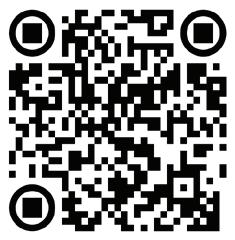
Read Gopal’s latest articles. newyorker.com/contributors/anand-gopal
Inhuman Weapons: Uninhabited Aerial Vehicles and the Moral Salience of Culture to Their Use in Central Asia
Book chapter by JOHN MARC SIANGHIO
Assistant Director
In this chapter in the newly published volume “Religion and Social Criticism: Tradition, Method and Values,” Sianghio uses the case of lethal drones in Afghanistan’s Pashtun regions and their ramifications for conflict resolution to demonstrate how religion and morality, as they are understood at the local level, are critical to effective and ethical military decision making.

Available online at Springer Nature ow.ly/VKCM50UFPkJ

Amid the horrors of war, survival often eclipses all else. But for Dr. Mohammad Yousof Asefi, a physician and celebrated artist, saving Afghanistan’s art was as critical as saving lives.
Born in Kabul in 1960, Asefi earned his medical degree from Kabul Medical University in 1989. Alongside his medical career, he nurtured a passion for painting. Under the Taliban regime in the 1990s, artists were punished for depicting people or even animals in their work. Asefi risked his life to protect Afghan art by concealing human and animal figures in over 120 paintings. Following the Taliban’s fall, he restored the works and opened a gallery in Kabul.
When the Taliban returned to power in 2021, Asefi fled Afghanistan with his family. Now at home in Arizona, as artist-in-residence at the CSRC, he shares his art and story, expanding perspectives and educational opportunities for students and the ASU community.
During Humanities Week 2024, the center celebrated Asefi’s dedication to preserving Afghan cultural heritage at a special gallery event. More than 100 community members gathered to witness the power of art to transcend oppression—viewing his work, learning his story and observing him create new pieces.

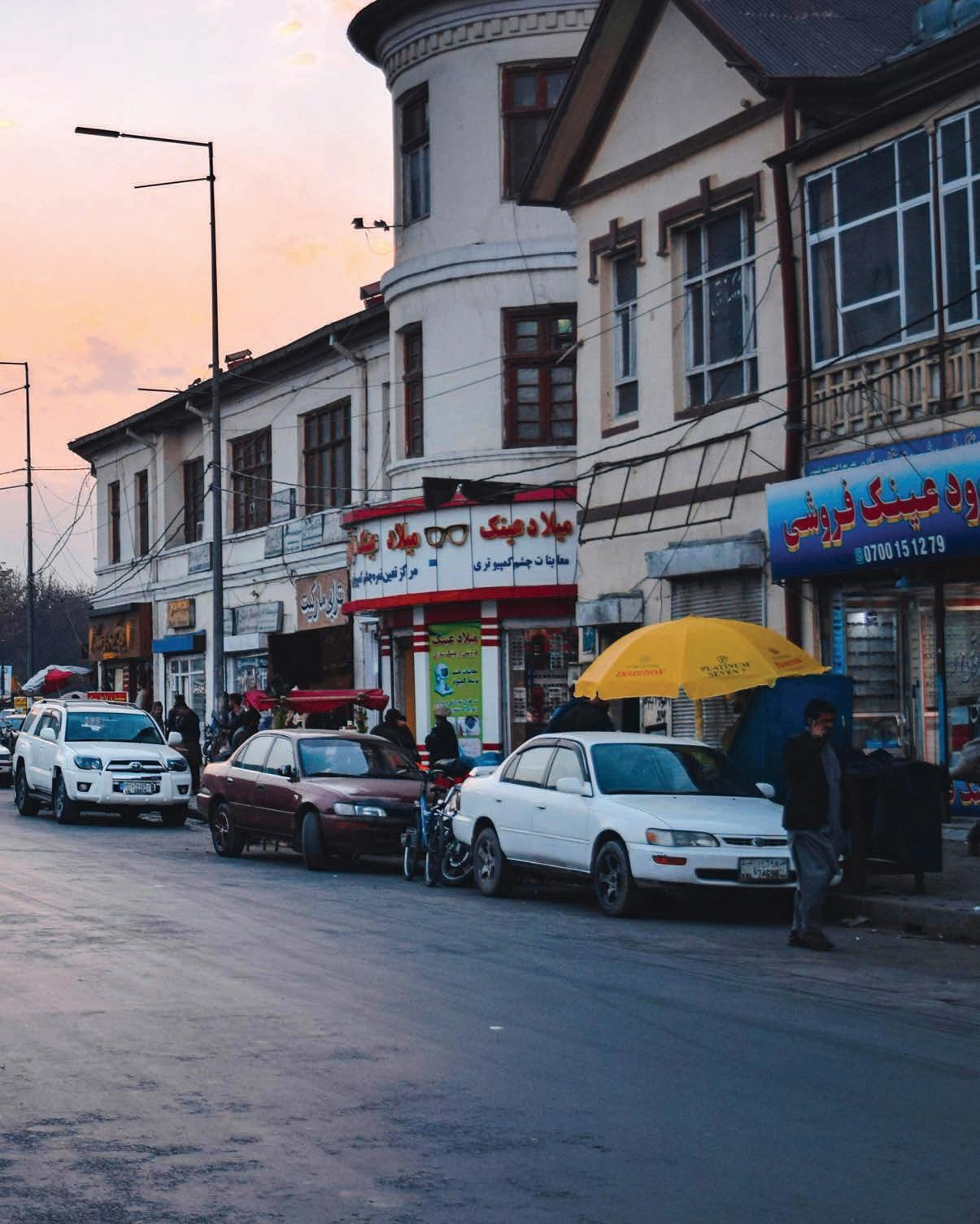
Learn more about Dr. Asefi. csrc.asu.edu/artist-in-residence
JOHN MARC SIANGHIO
Assistant Director
ASU Explorations in Dialogue, Religion and Peace, a summer conference co-led by the Center for the Study of Religion and Conflict, was the culminating event for the U.S. Department of State’s Study of the U.S. Institutes for Student Leaders on Religious Diversity and Democracy.
Program participants are exceptional emerging foreign leaders between 18 and 25 years old, nominated by the public affairs sections of United States embassies, consulates and Fulbright commissions to travel to the U.S. and learn about religious diversity and democracy.
The 2024 conference brought 22 student ambassadors representing five nations and four religious traditions to the ASU Downtown campus. There, they participated in discussions of the latest research and strategy in interreligious peacebuilding, as well as hands-on training activities simulating real-life problems of interfaith peacebuilding.
“I gained valuable insight into the importance of peace building strategies. I also understood the importance of effective communication in bringing about useful collaboration,” said Umaimah Aijaz, a student from India. “The group activity of bridge building was very memorable for me.”
Students were particularly interested in the unique look into North American Indigenous perspectives and their connections to global indigeneity. The participants noted they had neither received nor could they experience this learning anywhere else. Lebanese student Alexandre Nakad explained, “A lot of the information provided about Indigenous people in the U.S. was new to me but of high significance.”
The conference was co-directed by John Marc Sianghio (Assistant Director, Center for the Study of Religion and Conflict) with professors Marisa Duarte (School of Social Transformation), Jacob Meders (School of Humanities, Arts and Cultural Studies) and Lila Sharif (School of Social Transformation).


Understanding the Religious Dynamics of Conflict and Peace was by far one of the best sessions of my experience. [It] was eyeopening for me to realize that I don’t have to believe in the same thing as others to work with them on a common issue.
—Usama Answar, Egypt


The Undergraduate Research Fellows Program is the center’s signature student initiative, offering unparalleled opportunities for undergraduates to engage with cutting-edge research.
Taught by senior faculty, the program builds research skills, fosters professional networks and prepares students for meaningful careers and advanced academic pursuits.
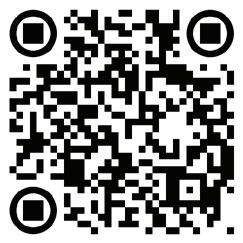

Explore the fellows program csrc.asu.edu/undergrad-fellows
Adelaide Randall, a 2024 Fellow and Ansari Travel Scholar, received a Fulbright English Teaching Assistant Award after graduating. She serves as an English fluency teacher in Bulgaria where she also leads the speech and debate team.
Photographs courtesy of Adelaide Randall

ASU Alumna | Undergraduate Research Fellow
Ansari Scholar
As a student at Arizona State University, I studied psychology, international studies and nonprofit management to deepen my understanding of global complexities and our shared human experience. My goal was to explore how individuals, societies and nations interact and to find ways to bring people together to tackle global challenges.
My time in the Undergraduate Research Fellows Program at the center provided opportunities to connect these disciplines in transformative ways. I examined how religion, as an expression of our shared humanity, can shape perceptions, decisions and actions. This experience has proven invaluable for connecting with diverse Balkan communities as a 2024-2025 U.S. Fulbright grantee in Bulgaria.
The greatest impact of being a CSRC-affiliated student was the center’s unwavering support of my curiosity.
I received every possible resource to pursue my interests, from research opportunities to enriching seminars led by the center director, where our diverse cohort discussed contemporary issues.
Receiving the 2023 Ansari Travel Scholarship in Religion and International Affairs enabled me to participate in the International Association for the Psychology of Religion academic conference in the Netherlands. There, I connected with leaders in the field who shared groundbreaking research, insights and practical advice from their real world experiences.
Engaging repeatedly with experts—at the conference and through university events hosted by the center— gave me knowledge, confidence and the realization that the only limits to my potential are what I can imagine and am willing to work toward.
As a 2024 CSRC delegate for the Student Conference for Religion in the Public Sphere at Brigham Young University, I had the opportunity to put this insight into action. I applied the knowledge gained during my undergraduate fellowship as I collaborated with students from around the country, developing solutions to enhance religious pluralism on college campuses.
My experiences through the center gave me the skills and selfassurance to lead cross-cultural community empowerment initiatives and collaborate with global scholars essential to my work as a Fulbright teaching assistant.
Other students would be fortunate to work with the center, which is fully dedicated to their success, celebrates their achievements and provides every opportunity for them to thrive. My experience with the center has propelled my future trajectory, and I am confident I will always have this supportive unit behind me as I pursue my next steps!
We are excited to share that Adelaide was accepted to Harvard Graduate School where she will pursue an advanced degree.
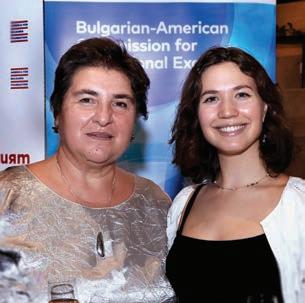
Reny Todorova, Fulbright Mentor Teacher at Aprilov National High School in Gabrovo, Bulgaria with Adelaide Randall.
Our alumni earned degrees in:
American Studies
Anthropology
Arabic
Architecture
Art Education
Asia Studies
Biochemistry
Biology
Biology and Society
Biomedical Engineering
Business
Chinese Language
Civic and Economic Thought and Leadership
Communication
Criminology and Criminal Justice
Economics
English
English Linguistics
English Literature
European History
Family and Human Development
Finance
French
Geography
German
Global Health
Global Management
Global Studies
Health Sciences
History
International Studies
Jewish Studies
Journalism and Mass Communication
Justice Studies
Languages and Literature
Management, Business Healthcare
Mechanical Engineering
Molecular Bioscience
Museum Studies
Philosophy
Political Science
Psychology
Public Administration
Public Service and Public Policy
Religion and Applied Ethics
Religion, Politics and Global Affairs
Religious Studies
Russian Language and Literature
Russian
Secondary Education
Sociology
Southeast Asian Studies
Spanish
Supply Chain Management
Sustainability
Theatre
Women and Gender Studies
Center programs educate ASU students from across the University, giving them a deeper understanding of how religion, conflict, and the pursuit of peace permeate and shape the human experience.
We equip individuals to address complex issues in an interconnected world with an interdisciplinary approach that builds informed citizens, strengthens relationships and prepares students for careers in government, public service, education, health professions, journalism and more.
CSRC alumni have earned some of the most prestigious awards that recognize their academic excellence, global engagement and leadership potential, including Fulbrights, a Boren Award and Marshall Scholarships.
Since the center’s founding in 2003, we have have educated:




My notebook is filled with questions, stories, and personal asides that I plan to continue revisiting and using as a jumping-off point for, hopefully, a long career in policy-centered research.
Wen Wendt
Ansari Travel Scholar,
2021
With the generous support of the Friends of the Center I was able to continue digital archival research into the United Nations funded project for the development of Lumbinī— the birthplace of the Buddha Siddhartha Gautama—as a “fountain of world peace.”
Blayne Harcey
Friends of the Center Graduate Research Awardee, 2021
The center’s funding and support has been critical to the success of my research, from the early stages and on-site investigation to the completion of my theory of neocolonial overwriting and exploration of the pseudoreligious imaginary. I am immensely grateful for the connections I’ve forged and the financial assistance I’ve received, without which my thesis would not have been possible.
Eden Miller
Friends of the Center Graduate Research Awardee, 2024
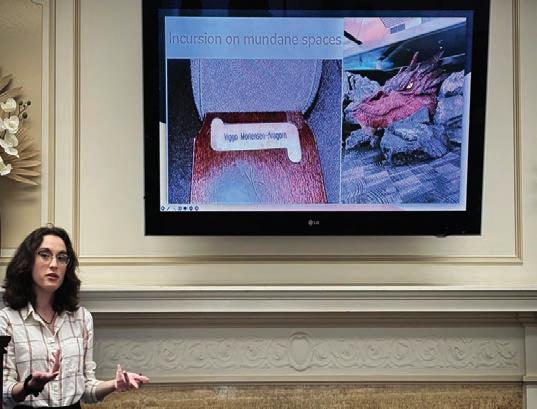
With your help we inspire hope, spark dialogue and transform understanding. Thanks to our Friends whose generous support makes everything we do possible!
Every effort has been made to ensure the inclusion of donors who supported the center over the past five years. If your name has been inadvertently omitted, please let us know. We are most grateful for your generosity and support. Giving categories are based on donors’ average annual contributions over the past five years.
Acair Foundation
Penelope Davis
Ann Hardt
Barbara and Thomas Leard
Tochia and Stan Levine
Thomas Mallon
Maxine and Jonathan Marshall
Elaine and Richard Morrison
Becky and Doug Pruitt
John Roberts
Betty and John Whiteman
Platinum (up to $10,000)
Fariba and Bijan Ansari
Joseph Gramley
I. Jerome Hirsch
Ruth Ann and Tom Hornaday
Sally and Richard Lehmann
Gold (up to $2,500)
Judith Ellerman
Margaret Gooch
faculty research projects funded
individuals worldwide educated by our free public programs
$300K+ in scholarships awarded to students across the university
Donor contributions may be acknowledged in center publications, including our impact reports, newsletters and on our website. If you do not want your name published please notify our office.
Yolanda and Kevin McAuliffe
Maroon (up to $1,000)
Susan and William Ahearn
Julius Altman
Greg Altschuh and Janis Lipman
Anonymous
Martha and Randall Booze
Peter Buseck
Linell Cady and Robert Borengasser
Ginger and John Carlson
Mary Kathleen “Kitty” Collins
Denise and Robert Di Censo
Monica Graham
Lesley and Gary Hammond
Maureen Horwitz
Mary Hutchings Reed
Cynthia Jewett
Sharon and Ed Reese
Aleda Richter-West and Stephen West
Romelle and Barry Ritchie
Laura and Herbert Roskind
Heidi Toth
Carolyn Warner
Anonymous
Sarah Auffret
Stephen Bartlett
Patricia Bauer
Dawn Beeson
Rebecca and Charles Berry
Mary Bordenave-Birchfield and George Birchfield
Cindy and Marty Block
Katherine Brewer and Christopher West
Alex Brooks and Justus Smith
Amanda Brown
Jason Bruner
Mary Busby
Vicki and Howard Cabot
Milu and Isaac Cabrera
Jeanne Carlson
Lynn and Jack Carlson
Huaiyu Chen
Agnes Kefeli and John Clay
Wendy and Jeffrey Cohen
Shelley and Matt Correa
Fran and Robert Culligan
Mesut Duzce
Timothy Eastling
Steven Elisala
Seija Farber
Tracy Fessenden and Kevin Dalton
Rosemarie and Robert Fitzsimmons
Patricia Flahart
Carolyn Forbes
BrieAnna Frank
John M. Franklin
James Gauer
Al Gephart and Elisabeth Wells-Gephart
Elise and David Gould
Jiwan and Prem Goyal
Gisella Grant
Terrence Gregg
Jane S. Hillerson
Bryan Howard
Catherine Elaine Ivy
Sol Jaffe
Cheri and John Jarrett
Cheryl Johnson
Dale M. and McPhee Kalika
David Kim
Margaret and Ed Kuffner
Rose Leather
Elizabeth Maisel
Jennifer and John Marsteen
Brittany and Kevin Martin
Donna Martin
Sheila and William Mautino
Ann and Richard McGlynn
Karen McNally and Matthew Korbeck
Loy Merkle
Lawrence Mintz
Jeanne Miyasaka and Joseph Ryan
Wendy and Michael Morris
Marietta Morrisey
Austin Morrow
Catherine O’Donnell and Brian Gratton
Ingrid O’Grady and Emmett Pearse O’Grady
Laurie Perko
Janet Persen
Anne Pincus
Logan Rhind and Amanda Hutchinson
Sarah Riccardi-Swartz and Jeremy Swartz
Brenda Ringwald
Daniel Rothenberg and Ilissa Lazar
Delia Saenz
Martha and Warren Salinger
Jill and Alan Sandler
Vincenta and Cayetano Santiago
Lois and Steven Scheiner
Sharon and Fred Schomer
Mary and Steve Serlin
Kathleen and Sabbatino Serrapede
Jane Severin
Stephen Shobin
Terry Shoemaker
Alyssa and John Marc Sianghio
Maxfield Smith
Sondra Solomon
Gayle and Clive Sommer
Alicia Somsen
Marilynn and Curtis Sorenson
Michael “Kody” Stimpson
Olga and James Strickland
Peter Suwarno
Janet Tatman
Marge Thornton
Tiffany Trent
Sara Trower
Alexis Trujillo
Sandra Whitley
Katlyn Wilcox
Linda and Lloyd Wilky
Sallie and Robert Wilson
Robin Wright
Harry M. Young
Annanelle (Ann) Hardt, a respected Arizona State University professor emerita, passed away on November 18, 2024 at the age of 96.
A lifelong Quaker, Hardt’s religious commitments led her to dedicate her career to promoting peace and nonviolence, locally and globally. Her legacy endures through the Hardt-Nickachos Peace Studies Endowment, which she founded in 2008 with her late husband, Tony Nickachos.
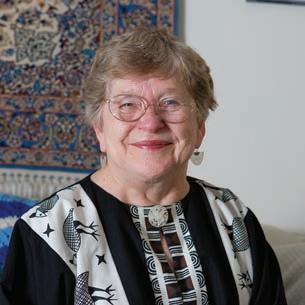
Peace studies, an interdisciplinary field that explores philosophy, conflict resolution, nonviolence and justice, was central to Hardt’s work. She sought to understand peace as a dynamic process, with applications in interpersonal, intergroup and international relations. This endowment supports public lectures, conferences, courses and the Hardt-Nickachos Chair in Peace Studies, in order to advance research and education about peace.
For many years, I wanted ASU to have courses in peace. As a society we have studied war and violence, but have had very little study of peace and non-violence. It’s time to study peace at ASU. —Ann Hardt
Hardt’s efforts helped develop peace-focused courses, numerous publications and events that are integral to the center’s mission. Each year, the center hosts conferences and lectures that reflect her commitment to fostering dialogue on peace.
Hardt retired from ASU in 1990 and remained active in the center for many years. Her vision, generosity and commitment led to the creation of peace studies at ASU. Her legacy will inspire future generations in perpetuity.
On behalf of all who have benefited from her philanthropy, the center expresses our deep gratitude for Professor Hardt’s lasting contributions. Her passion and generosity continue to inspire and drive our commitment to advancing peace and we are honored to carry the work forward.

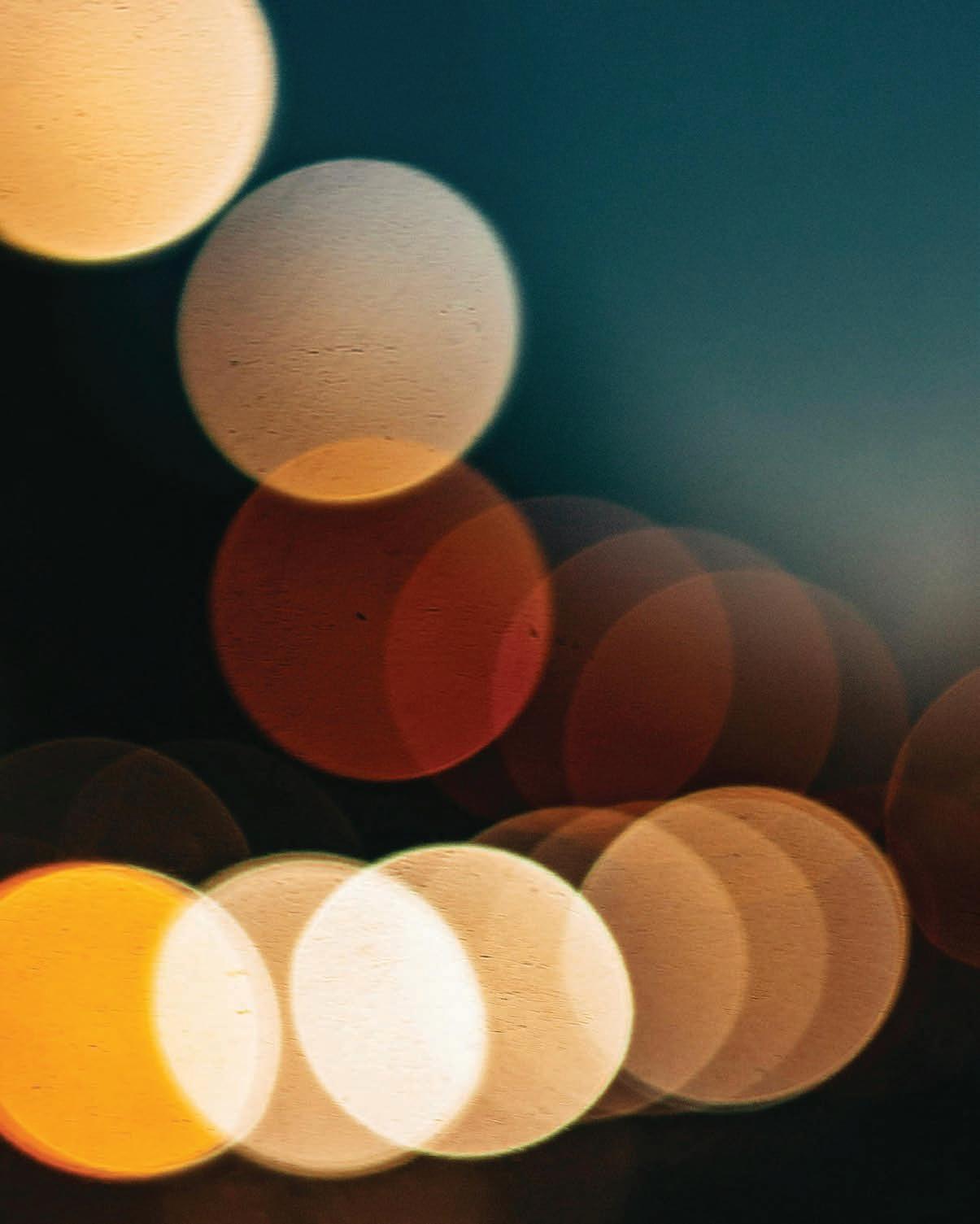
Learn more about Professor Hardt’s legacy and the impact of her philanthropy csrc.asu.edu/peacestudies
Community participation in our events, paired with generous financial support, is at the heart of everything we do to understand and respond to pressing local, national and global problems. Your gift is an investment in our community and the things we cherish in common. It is a concrete commitment to educate Arizona’s citizens, nourish our civic life and create a better polity and more sustainable world. Together, we inspire hope, foster dialogue and transform lives through learning.
Giving opportunities

Student Opportunities and Public Programs
Fund the Undergraduate Research Fellows program, provide scholarships to undergraduate and graduate students and sustain educational community programming.
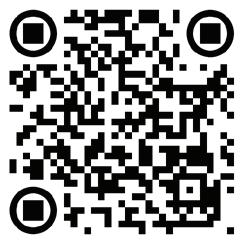
asufoundation.org/CA106516.html
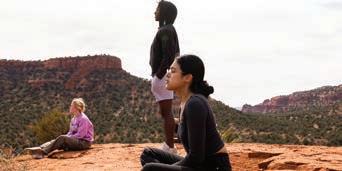
Spirituality and Public Life Fund
Help create transformative and innovative ways to explore spirituality’s place in culture, politics and the public square.
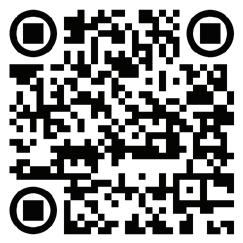
asufoundation.org/CA123567.html
Feeling inspired to make an impact with a major gift to the center?
Brittany Martin, Director of Development for the Humanties, can help you find creative ways to pair your passion with your giving. She can also assist with IRA qualified charitable distributions, appreciated property, other non-cash gifts and legacy gifts.
email: Brittany.Martin@asufoundation.org phone: (562) 688-8558

CSRC Visiting Scholars Fund
Support visiting scholars and help broaden learning opportunities by introducing diverse viewpoints and fostering cross-disciplinary collaboration.

asufoundation.org/CA126053.html
Donate by mail
Make check payable to: ASU Foundation/CSRC Send to: Center for the Study of Religion and Conflict c/o Brittany Martin College of Liberal Arts and Sciences PO Box 872401 Tempe, AZ 85287-2401
